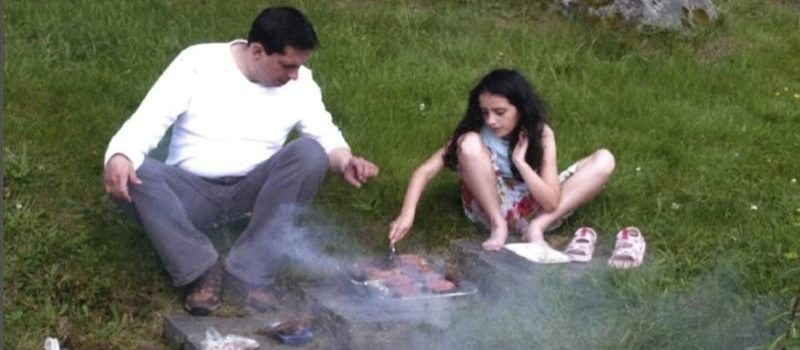“To my dad”: The weird world of losing a parent as a teenager
I was 15 when my dad died. This is no secret: it’s an inherently important part of who I am and have become, and it’s one of the first things people do – have to, even – learn about me.
Experiencing a trauma like that at such a young age is a weird thing to gauge. I wasn’t young enough to not understand the pain or what was happening, but also not old enough to be prepared that this day would come. It should have been a good 40 years in the making, really.
But life decided it wouldn’t work the ordinary way when it came to my dad – which suits him, really, as he lived an extraordinary life for the 45 years he was on this world. He taught inner-city Nottingham kids and tried to give them a chance in a system that doesn’t want to notice them; he wrote insightful books and beautiful poems; he raised my absolutely amazing brother through all his difficulties. My dad really is my hero – and I don’t say that lightly.
I wasn’t young enough to not understand the pain or what was happening, but also not old enough to be prepared that this day would come
Yet there’s naturally a whole host of issues with losing a parent that young, and also with dying that young. My dad won’t get to walk me down the aisle, or hold any grandchildren that one day may be had (very much ‘one day’ on that front – don’t worry mum).
There are books I read and films I watch that I know he would like, or would discuss with me. I sometimes catch myself wanting to make that phone call, to send that text, or even just talking to thin air like he can hear. Even four and half years on, the fact he is not here hurts almost as much as that moment when I kissed his cheek and said goodbye in some hospital morgue.
There are books I read and films I watch that I know he would like, or would discuss with me
He’s also romanticised now in a way he probably wouldn’t be if he was still here – the prodigal son, the charismatic big brother, the adoring partner, the list could well go on. It’s hard to mess up when you died years ago. Of course, I’m exceptionally biased, and believe my dad was the best man on the planet, hands down.
But the pain that surrounds him as a figure for friends and family to discuss means that he will always live at his greatest moment: the man that would fill a room with his presence and lighten it with his outgoing smile. He is trapped in time. I don’t know whether this is good or bad, if I’m honest.
He is trapped in time. I don’t know whether this is good or bad, if I’m honest
And these are just my thoughts and feelings while trying to make sense of this madness that is my grief. Losing a parent long before their time is a weirdly common experience.
One of my best childhood friends lost her lovely dad just a year ago, and many other people I know have experienced the same, or have terminally ill parents – something I was thankfully spared from experiencing due to the sudden nature of my dad’s death.
These are just my thoughts and feelings while trying to make sense of this madness that is my grief
But just how common it is doesn’t make it feel any less unfair: in this day and age of modern medicine, why is it my dad that had to die? When you see such cruelty and horrors going on each day, why is it the good people that go? This, of course, is verging onto the realm of religion, and is perhaps why so many people seek solace in its walls.
It’s all part of a ‘plan’ for them, there’s a purpose to seemingly pointless acts. Yet as a staunch atheist – in part due to this experience – I can’t comfort myself with answers to these questions.
When you see such cruelty and horrors going on each day, why is it the good people that go?
All I know is that there’s a loss I will never be able to fill, experiences I will never get to have, and an amazing man I was only starting to get to know beyond him being my ‘dad’. But, bloody hell, am I proud I get to call him that – and I hope he knows that.

Comments